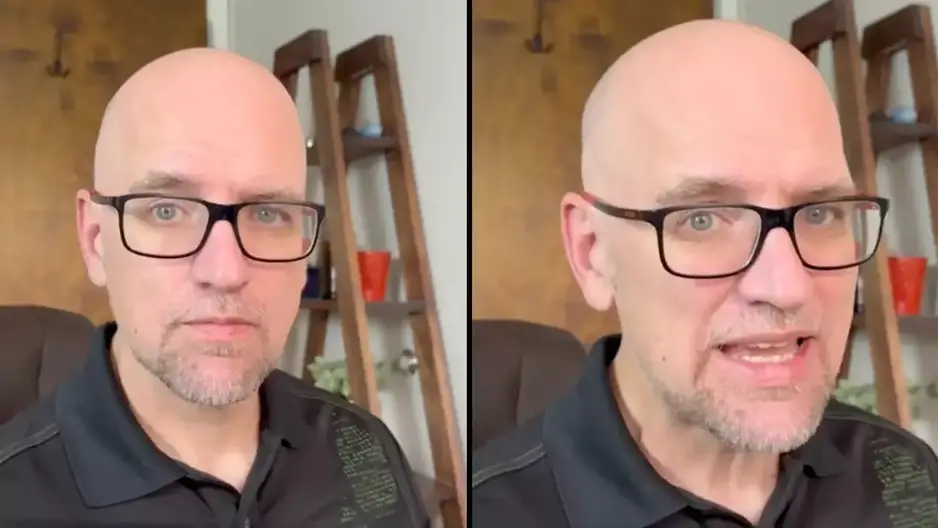
 Dillow, a relationship expert active on TikTok, believes that although expressing love is essential, overusing the phrase may lead to a loss of its significance.
Dillow, a relationship expert active on TikTok, believes that although expressing love is essential, overusing the phrase may lead to a loss of its significance.
 His recommendation has generated mixed reactions, with some agreeing with his perspective on deepening the meaningfulness of relationship expressions and others disagreeing, emphasizing that the phrase can never lose its value.
His recommendation has generated mixed reactions, with some agreeing with his perspective on deepening the meaningfulness of relationship expressions and others disagreeing, emphasizing that the phrase can never lose its value.

 Dillow begins by acknowledging the importance of saying ‘I love you’ to a partner.
Dillow begins by acknowledging the importance of saying ‘I love you’ to a partner.
However, he argues that constantly repeating the phrase – like saying it every time you end a phone call or greet each other – can make it feel routine and diminish its emotional impact.
He explains: “If you frequently tell your partner ‘I love you,’ I want you to stop,” clarifying that while affirming love is positive, the automatic repetition can turn it into a habit rather than a heartfelt expression.
For many people, that initial moment of saying ‘I love you’ in a relationship is a memorable and vulnerable experience.
 Yet, over time, Dillow suggests, this expression might lose its potency if it’s repeated too often, especially in situations that don’t carry emotional weight.
Yet, over time, Dillow suggests, this expression might lose its potency if it’s repeated too often, especially in situations that don’t carry emotional weight.
To illustrate, Dillow notes that saying “I love you” for mundane reasons, like when a partner remembers to fold up reusable bags, risks turning a profound statement into a casual, almost reflexive phrase.

 Instead, he recommends that couples try more specific expressions that highlight unique aspects of their relationship.
Instead, he recommends that couples try more specific expressions that highlight unique aspects of their relationship.
For instance, he suggests phrases like ‘I’m looking forward to seeing you’ or ‘I’m so thankful to have a partner who [fill in the blank].’
 He also recommends statements that express gratitude for specific moments, such as: “I probably don’t tell you this enough, but you really make my life better.”
He also recommends statements that express gratitude for specific moments, such as: “I probably don’t tell you this enough, but you really make my life better.”
These alternatives, he argues, have a more personal and genuine impact than the blanket statement of ‘I love you,’ especially when used habitually.
 Dillow’s approach isn’t intended to dismiss the phrase entirely.
Dillow’s approach isn’t intended to dismiss the phrase entirely.
Instead, he believes that couples can benefit from balancing it with specific, heartfelt affirmations that reflect their unique bond.
 He acknowledges that ‘I love you’ has inherent value but suggests that specificity can sometimes be a better way to communicate affection and appreciation.
He acknowledges that ‘I love you’ has inherent value but suggests that specificity can sometimes be a better way to communicate affection and appreciation.
“This isn’t to say that saying ‘I love you’ doesn’t have value,” he explains, but adds that: “If your goal is to communicate your love and affection, being more specific about what you’re saying is probably more effective.”

 Despite his thoughtful explanation, Dillow’s advice has stirred significant pushback from his audience.
Despite his thoughtful explanation, Dillow’s advice has stirred significant pushback from his audience.
Many commenters argue that ‘I love you’ can never lose its value simply because it’s repeated often.
 In fact, some people believe that saying it frequently is essential in relationships, as it reminds partners of their feelings in a straightforward, universally understood way.
In fact, some people believe that saying it frequently is essential in relationships, as it reminds partners of their feelings in a straightforward, universally understood way.
Others expressed a fear that not saying ‘I love you’ as often could lead to regret, with one commenter noting: “You never know when it will be the last time.”
Another perspective in the comments emphasizes that the key to expressing love lies in authenticity, not frequency.
As one person put it, ‘It’s about making sure you do things authentically,’ arguing that if the phrase is genuinely meant, it won’t feel empty, no matter how often it’s used.
 A recurring theme in the feedback is that true love withstands repetition, and those who are genuinely in love appreciate hearing ‘I love you’ as often as possible.
A recurring theme in the feedback is that true love withstands repetition, and those who are genuinely in love appreciate hearing ‘I love you’ as often as possible.
Where do you stand on the issue?
